Banned Movies That Upset Sensitive Audiences
By Jack Ripley | March 16, 2023
Cybill Shepherd Turned Heads In 'The Last Picture Show'banned in china and banned in arizona
Today, hardly a day goes by where there is no controversy or public debate about whether or not various films or other programs have crossed a line of what is acceptable to depict on film. Such debates consume an enormous amount of the public’s collective consciousness, and it seems sometimes that it’s all we ever do. It is easy to forget, however, that such debates are as old as film itself.
Many films over the decades have been controversial for their depictions of various things. Excessive violence, sexual themes, and use of questionable language in films have been magnets for public debate around their suitability to be shown and whether or not they degrade society through their being shown. This list is a journey back in time and an examination of some films from yesterday that fit that description.
Warning, this article features a collection of 60 photographs from films that have been banned in some countries. Viewer discretion is advised as some of these films may still be banned in certain locations.
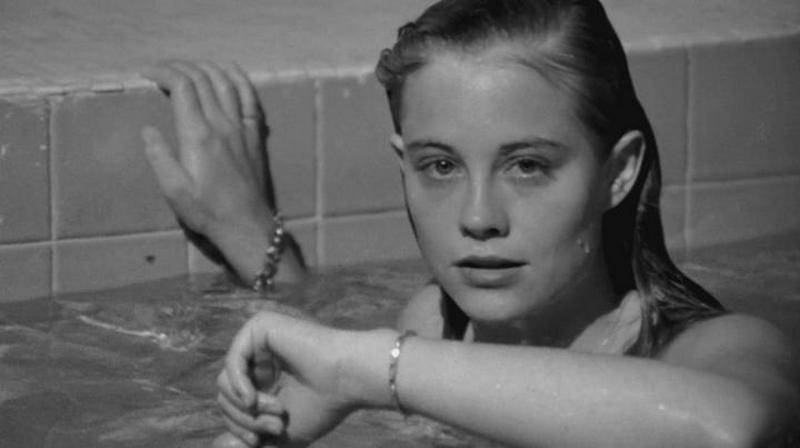
The Last Picture Show, a 1971 American film directed by Peter Bogdanovich, was banned in China upon its release due to its depiction of small town life and sexual themes. It was also banned in the state of Arizona due to its depiction of teenage sexuality.
The ban on the film in Arizona was eventually lifted, and the film has since gained critical acclaim and is considered a classic of American cinema. It was nominated for eight Academy Awards and won two, and has been included on numerous lists of the best films ever made. Today, The Last Picture Show is widely regarded as a masterful depiction of the human experience and a poignant exploration of the complexities of relationships, sexuality, and growing up. Its powerful performances and evocative cinematography have helped it to stand the test of time, and it continues to be widely studied and admired by film critics and fans alike.
The Violence Of 'Django' Turned the Western Genre Upside Down But It Was Barred From Screening In the UK Until the '90s
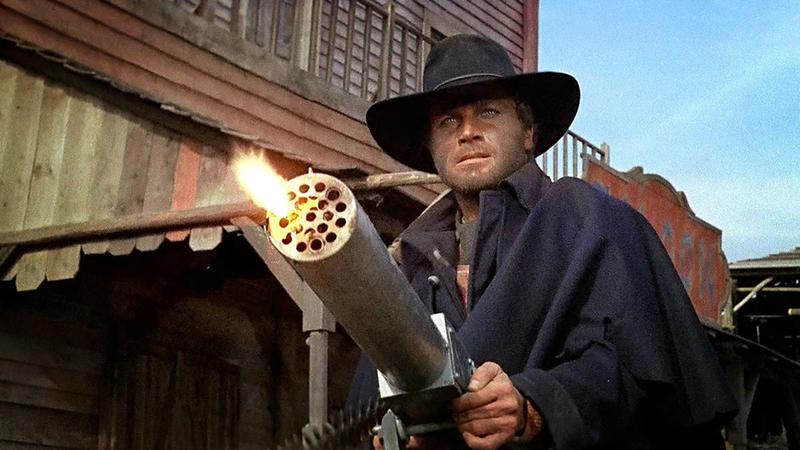
Django is a 1966 Italian spaghetti western film directed by Sergio Corbucci and starring Franco Nero as the title character, a former Union soldier who sets out to rescue his wife from a group of Confederate soldiers. The film is known for its violent and bleak tone, as well as its memorable score by composer Luis Bacalov.
Released in Italy in 1966, the film was a commercial success in its home country. However, it was banned in the United Kingdom in 1968 due to its depiction of graphic violence and was not released in the country until 1993, when it was released on home video with some cuts to the film.
Today, Django is widely regarded as a classic of the western genre It is known for its grim and violent portrayal of the American Old West, and its themes of vengeance and survival. Django has spawned numerous sequels and imitators, and its iconic theme music has been widely used in other media. The film has been re-released in recent years in restored versions and is widely available on home video and streaming platforms.
'Monty Python and the Holy Grail' was a hit but New Zealand said 'No thanks'

Monty Python and the Holy Grail is a classic comedy film that has gained a massive cult following over the years. However, it was initially banned by local authorities in the UK and New Zealand due to its controversial and irreverent content. The film satirizes the Arthurian legend and features a number of absurd and outrageous scenes that were considered too risqué for the time. Despite the ban, the film found its way into underground screenings and quickly gained a devoted fan base. Today, Monty Python and the Holy Grail is widely regarded as a comedic masterpiece and has inspired countless parodies and homages. It continues to be a beloved classic among fans of Monty Python and fans of comedy in general.
No Art Film Shocked Audiences Like 'Flaming Creatures' banned in 22 U.S. States and Four Countries
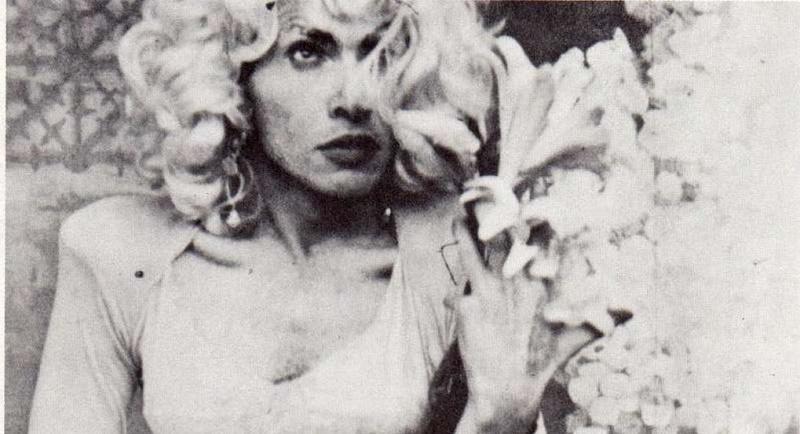
Flaming Creatures is a 1963 experimental film directed by Jack Smith. The film is a satire of Hollywood B movies and features a cast of unconventional and marginalized actors, many of whom were members of the LGBTQ+ community. The film is known for its use of nonlinear storytelling, its surrealist and campy style, and its depiction of gender and sexual fluidity.
Flaming Creatures was released in 1963 and was immediately met with controversy due to its depiction of sexual and gender nonconformity and its use of explicit language and imagery. The film was banned in 22 states in the United States and in several other countries, including Canada, Sweden, and Finland, due to its controversial content.
Despite the controversy, Flaming Creatures has been widely regarded as an important and influential work within the underground and avant-garde film scenes. It has been credited with pioneering the use of camp and satire in underground cinema and with challenging traditional notions of gender and sexuality. The film has been re-released in recent years and is available for viewing at select film festivals and institutions.
Canada and the UK banned 'Pretty Baby' until scenes of a young Brooke Shields were cut
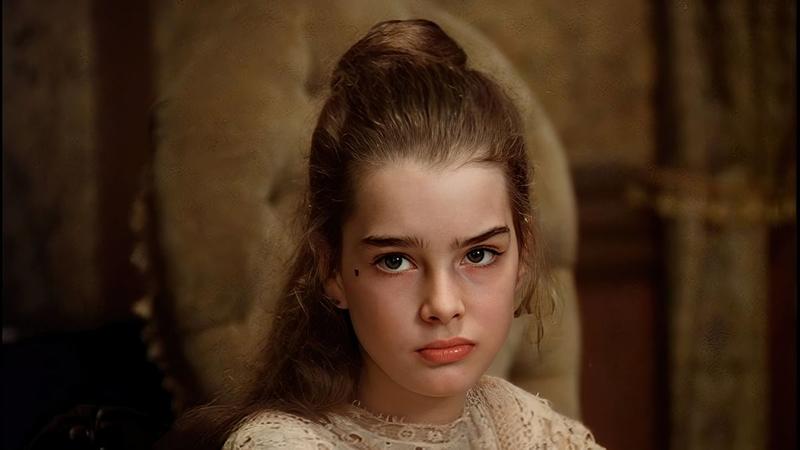
Pretty Baby is a 1978 drama film that was banned in Canada as well as various councils in the UK due to its controversial subject matter. The film tells the story of a young girl growing up in a brothel in New Orleans during the early 20th century. The film's depiction of child sex work and sexual themes was considered inappropriate and offensive by the Canadian censors, leading to its ban. Despite the ban, Pretty Baby has since gained a reputation as a classic of American independent cinema and has been praised for its performances and evocative portrayal of the brothel culture of the time.
'Star Wars' May Have Taken Place In A Galaxy Far, Far Away, But It Was Banned In The Soviet Union

The first Star Wars film, released in 1977, was banned in the Soviet Union because the government believed that the film's portrayal of the "evil empire," a term used to describe the Galactic Empire in the Star Wars universe, was a thinly veiled critique of the Soviet Union.
The ban on the film was part of a larger effort by the Soviet government to suppress Western influences and ideas, particularly in the realm of popular culture. In 1983, President Reagan famously referred to the Soviet Union as the "evil empire," further cementing the connection between the Star Wars franchise and Cold War politics.
Despite the ban, Star Wars was widely popular in the Soviet Union and was often viewed illegally or through underground means. Today, the film is widely recognized as a classic of science fiction and is enjoyed by fans around the world.
'A Clockwork Orange' Was Pulled From Theaters In The UK By Its Director, Stanley Kubrick

A Clockwork Orange, a film directed by Stanley Kubrick and released in 1971, was pulled from theaters by Kubrick himself shortly after its release due to the controversy and criticism it received. The film, based on a novel by Anthony Burgess, tells the story of a young man named Alex who enjoys committing acts of violence and "ultra-violence" before undergoing an experimental treatment to "cure" him of his violent tendencies.
The film's depiction of graphic violence and sexual assault sparked outrage and condemnation from audiences and critics, leading Kubrick to withdraw it from circulation in the UK. Despite the controversy surrounding it, A Clockwork Orange has since gained a cult following and is now considered a classic of cinema.
Its place in history as a banned film in South Korea as well as some provinces in Canada adds to its reputation as a provocative and controversial work, and the film's exploration of themes of free will, morality, and the consequences of violence make it a timeless and thought-provoking work that continues to challenge modern audiences.
An uncut version of 'Caligula' is still banned in several countries

Caligula, a film released in 1979, caused quite a stir when it was banned in several countries due to its explicit sexual content and graphic violence. The film, which tells the story of the infamous Roman emperor Caligula, features a number of highly explicit sexual scenes and graphic violence.
These elements, combined with the film's lavish production values and all-star cast, made it a controversial and notorious work that was banned in several countries due to its explicit content. The film was finally released in its uncut version in the UK nearly 40 years after its release in 2008.
'Black Sunday' Remains A Shocking Piece of Italian Horror that was initially banned in the UK

Black Sunday is a 1960 horror film directed by Mario Bava and starring Barbara Steele. It was released in Italy in 1960 and in the United States in 1961. The film is based on the novel The Mask of Satan by Nikolai Gogol and tells the story of a witch who is burned at the stake in the 17th century and comes back to life 200 years later to seek revenge on her killers' descendants.
Black Sunday was banned in the United Kingdom in 1961 due to its depiction of graphic violence and gore. It was later released in the UK in 1966 with some cuts to the film.
Black Sunday is considered a classic of the horror genre and is often cited as a major influence on the Italian horror film movement of the 1960s and 1970s. It is known for its atmospheric cinematography and its use of Gothic elements, as well as for its memorable central performance by Barbara Steele. Today, Black Sunday is widely available and is considered an important and influential work within the horror genre.
'I Am Curious (Yellow)' Faced Censorship At Every Turn For Its Shocking Show Of Skin

I Am Curious (Yellow) is a 1967 Swedish art film directed by Vilgot Sjöman. The film is a political and social commentary that follows a young woman named Lena as she investigates various social and political issues in Sweden. The film is known for its frank depiction of sexuality and its use of unconventional narrative techniques.
Upon the film's release in its home country it was a commercial and critical success. However, it was banned in Massachusetts due to its depiction of sexual content, which was considered to be obscene by some groups. The film's ban in Massachusetts led to a significant amount of media attention and controversy, and it became a cause célèbre for advocates of free speech and artistic expression.
After its initial ban, I Am Curious (Yellow) was released in the United States in a modified version that removed some of the more explicit content. The film was a commercial success in the United States and received widespread critical acclaim.
Today, I Am Curious (Yellow) is widely regarded as an important and influential work within the art film world. It is known for its groundbreaking depiction of sexuality and its use of unconventional narrative techniques, and it has been credited with paving the way for more explicit and controversial films in the art house circuit.
'Gone with the Wind' Didn't Premiere In The Soviet Union Until 1990

The film Gone With The Wind was banned in the Soviet Union upon its release in 1939 due to its depiction of survival in a time of war, the same reason the film was banned in Nazi Germany during World War II. The film was seen as promoting backward and reactionary ideas that were at odds with the values of the Soviet state. However, in 1990, the ban on the film was lifted and no reason was given.
Divine Still Shocks Audiences With the Final Scene of 'Pink Flamingos'

Pink Flamingos is a 1972 black comedy film directed by John Waters that became infamous for its outrageous and transgressive content. The film follows the exploits of a character named Divine, a trashy and amoral woman who becomes embroiled in a competition for the title of "Filthiest Person Alive."
The film's depiction of shocking and taboo subjects, including drug use, murder, and sexual deviance, led to it being banned in Australia for many years. Despite the censorship, Pink Flamingos became a cult classic and helped to establish John Waters as a controversial and influential filmmaker.
Waters, known for his humorous and irreverent approach to filmmaking, responded to the ban with a tongue-in-cheek attitude, stating that he was "flattered" by the attention and that the film's notoriety only served to make it more popular. Today, Pink Flamingos is remembered as a iconic and influential piece of counterculture cinema that pushed the boundaries of good taste and continues to shock and entertain audiences with its outrageous content.
The Religious Text In 'Life of Brian' Set Off Alarm Bells Across The World

Monty Python's Life of Brian was a satirical comedy film released in 1979 that caused quite a stir due to its controversial subject matter. The film, which centers around a man named Brian who is mistaken for Jesus Christ, was banned in the UK, Ireland, and Norway due to its perceived blasphemy and offense to Christian beliefs. Despite the censorship, the film became a cult classic and gained a large following, with many praising its wit and clever commentary on organized religion.
The Monty Python group, known for their irreverent and boundary-pushing comedy, responded to the censorship with their usual wit, with member John Cleese famously stating that the film was "only banned in three countries – that's not bad for a film with subtitles." Despite the initial controversy, Life of Brian has since gained a reputation as a masterpiece of comedy and has had a lasting impact on the genre.
The Brutality Of 'Peeping Tom' Shocked British Audiences, And Finland Kept The Film From Theaters For More Than Two Decades

Peeping Tom is a psychological horror film released in 1960 that was directed by Michael Powell. The film tells the story of a young man named Mark Lewis who works as a camera operator and murders women while filming their reactions to his advances, something that was incredibly shocking for the time. The film was initially met with widespread critical acclaim, but it faced controversy due to its depiction of voyeurism and sexual violence. As a result, the film was banned in Finland until 1981, when it was finally allowed to be shown to audiences with an age restriction.
In addition to the controversy surrounding its themes, Peeping Tom faced backlash from Powell's colleagues in the film industry, who believed that the film's disturbing content would damage his reputation. Despite the negative reception, Peeping Tom has since gained a cult following and is now considered a classic of British cinema. It is often remembered as a groundbreaking and influential film that pushed the boundaries of what was considered acceptable in the horror genre.
'Salò, or the 120 Days of Sodom' Remains A Brutal Viewing Even In Countries Where It's Allowed To Screen
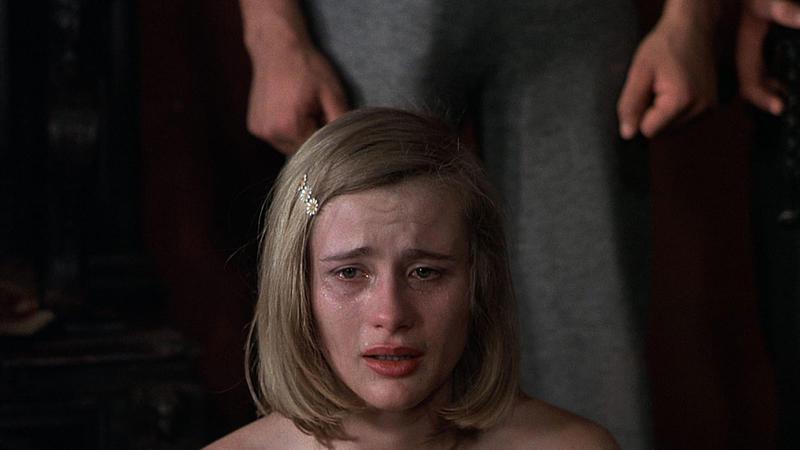
Salò, or the 120 Days of Sodom is a controversial and highly disturbing film that depicts sexual violence and degradation, torture, and murder. It has been banned in several countries, including Australia, due to its graphic content and themes of sadism, fascism, and violence against women. In Australia the film was banned upon its release in 1976 until the ban was lifted in 1993. Five years later, the film was banned again for "offensive cruelty with high impact" before it was approved for release on home video in 2010 thanks to bonus material that provides additional context for the rest of the film.
The movie is based on the book by the Marquis de Sade and follows the story of four wealthy Italian fascists who kidnap and hold captive a group of young people, subjecting them to a series of cruel and degrading acts over the course of 120 days.
The film is notorious for its graphic depiction of sexual violence and torture, and has been described as one of the most disturbing films ever made. It has been widely condemned for its depiction of sexual violence and has been the subject of numerous censorship and legal challenges. Despite this, the film has gained a cult following and has been widely analyzed by scholars and film critics as a commentary on power, sexuality, and the human condition.
Sam Peckinpah's 'Straw Dogs' Turned Audiences Off With Its Intense Sexuality and Violence

Straw Dogs is a controversial and violent film that was banned in the UK from the 1980s to 2002. The film, directed by Sam Peckinpah, is about a young American couple who move to a small village in England, where they become the targets of hostility and violence from the local residents. The film is notable for its graphic violence, particularly a rape scene that was considered particularly disturbing at the time of its release.
The film was banned by various councils in the UK due to concerns about its depiction of violence and sexual assault. It was also criticized by some critics for its perceived glorification of violence and its portrayal of women as victims. Despite these criticisms, the film has gained a cult following and has been widely analyzed by scholars and film critics as a commentary on violence, masculinity, and the human condition. It is considered a classic of the "revisionist Western" genre and has influenced a number of other films and filmmakers.
In 2002, the ban on Straw Dogs was lifted, and the film was released on DVD in the UK. However, it was still rated as an "18" (meaning it could only be sold to or viewed by adults) due to its graphic content. The film remains controversial and is still widely debated for its themes and depiction of violence.
'The Devils' Was Built To Stir Controversy
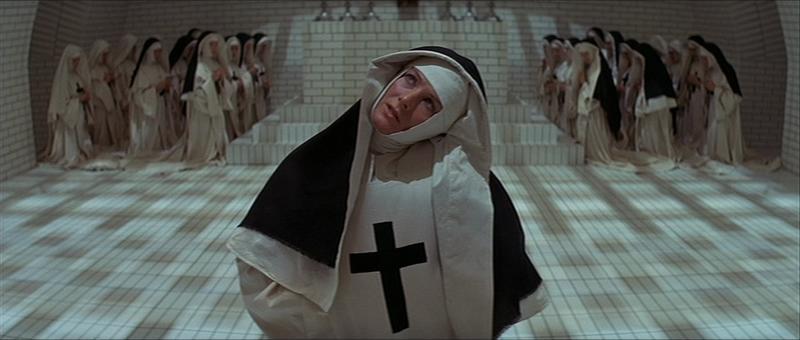
The Devils is a controversial and highly disturbing film that was banned in Finland until 2001 due to its graphic content and themes of sexual violence and blasphemy. The film, directed by Ken Russell, is based on the true story of Father Urbain Grandier, a 17th century French priest accused of witchcraft and heresy. The film is notable for its graphic depiction of sexual violence, torture, and religious imagery, and has been described as one of the most disturbing and controversial films ever made.
The film was banned in Finland due to concerns about its depiction of violence and sexual assault, as well as its perceived blasphemy and sacrilegious content. It was also criticized by some critics for its portrayal of women as victims and for its perceived glorification of violence. Despite these criticisms, the film has gained a cult following and has been widely analyzed by scholars and film critics as a commentary on religion, power, and sexuality. It is considered a classic of the British New Wave movement and has influenced a number of other films and filmmakers.
The ban on The Devils was finally lifted in 2001, and the film was released on DVD with an "18" rating, meaning it could only be sold to or viewed by adults.
'The Exorcist' Convinced Audiences That The Devil Wanted Their Souls

The Exorcist is a horror film that was banned in the UK and Ireland due to its graphic content and disturbing religious themes. The film, directed by William Friedkin, is about a young girl who is possessed by a demonic entity and the efforts of two priests to exorcise the demon from her body. The film is notable for its graphic depiction of violence and demonic themes, and has been described as one of the most disturbing and influential horror films ever made.
The Exorcist was banned in the UK and Ireland due to concerns about its depiction of priests as flawed human beings. It was also criticized by some critics for its portrayal of women as victims and for its perceived glorification of Satan. Despite these criticisms, the film has gained a widespread following and has been widely analyzed by scholars and film critics as a commentary on religion, faith, and the human condition. It is considered a classic of the horror genre and has influenced a number of other films and filmmakers.
The ban on The Exorcist was eventually lifted in the UK and Ireland, with the latter country only lifting the ban in 1998, and the film was released on DVD with an "18" rating, meaning it could only be sold to or viewed by adults.
The MPAA Hated 'The Moon is Blue' But Not As Much As New Jersey Hated The Movie

The Moon is Blue, a 1953 romantic comedy film directed by Otto Preminger, was controversial at the time of its release because it dealt with taboo subjects such as premarital sex and contraception. These themes were considered inappropriate for a film that was released during the era of Hollywood's Production Code, which was a set of moral guidelines that governed the content of American films from the 1930s to the 1960s. As a result, the Motion Picture Association of America (MPAA) refused to grant the film a Production Code seal, which was necessary for a film to be distributed to theaters. The film was banned in New Jersey because state law at the time prohibited the exhibition of films that did not have the Production Code seal.
Marlon Brando In 'The Wild One'
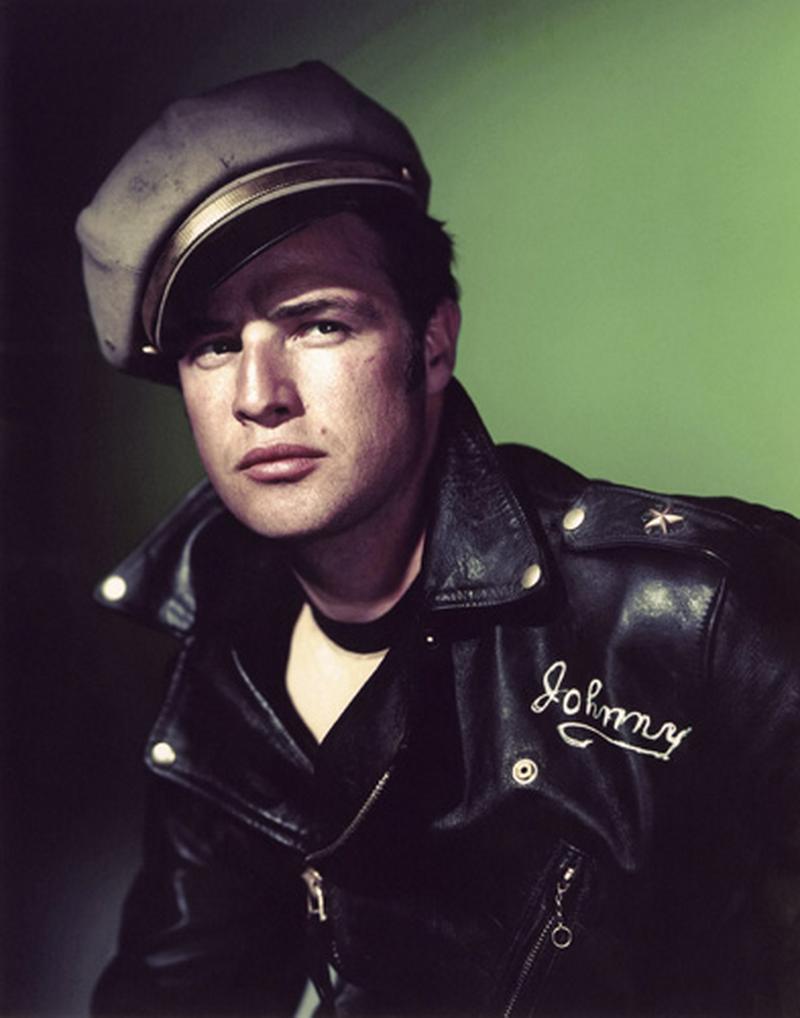
The Wild One, a 1953 American film directed by László Benedek, was banned in the United Kingdom for 14 years after its release in the United States due to its controversial themes and depiction of motorcycle gangs. The film, which starred Marlon Brando as the leader of a gang of rebellious bikers, was seen as promoting a lawless and antisocial lifestyle, and was thought to be potentially damaging to young people who might be influenced by its message.
The film was finally released in the UK in 1967, after the British film censorship board decided that the passage of time had made the film less potentially harmful to audiences. It was released in a modified version, with some scenes cut and others added in order to make the film more acceptable to British audiences.
'Titicut Follies' Exposed The Horrific Conditions In Mental Hospitals... and Was Condemned For Doing So
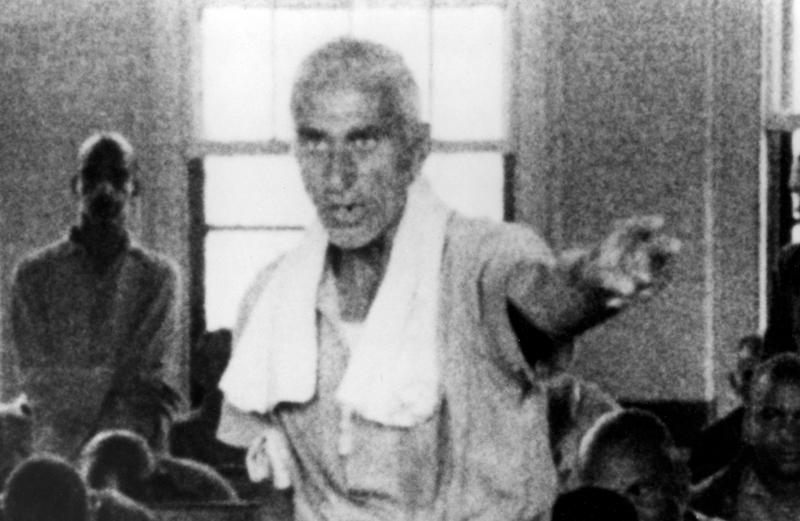
Titicut Follies, a 1967 American documentary film directed by Frederick Wiseman, was banned in the United States before its debut due to its graphic depiction of conditions at the Bridgewater State Hospital for the Criminally Insane in Massachusetts. The film, which was filmed in black and white, shows the harsh and often inhumane treatment of patients at the hospital, and includes scenes of forced medication, restraints, and abuse.
The film was banned in the U.S. on the grounds that it violated the privacy of the patients depicted in the film and that its release could potentially cause harm to the reputation of the hospital and the state of Massachusetts. The ban on the film was eventually lifted in 1991, after the Massachusetts Supreme Judicial Court ruled that the film's educational value outweighed any potential harm caused by its release.
Today, Titicut Follies is widely regarded as a landmark documentary film and an important work of social commentary. Its unflinching portrayal of the realities of life in a psychiatric institution has had a lasting impact on the way that such institutions are viewed and has contributed to reforms in the treatment of mental illness.
Disney's 'The Vanishing Prairie' Almost Became Extinct Thanks To The Censorship Board

The Vanishing Prairie was released in 1954 and was widely available to viewers upon its release, but one state really didn't want people to see this movie. The film, which was narrated by Winston Hibler, documents the natural history of the American Great Plains and the wildlife that lives there. It was one of a series of nature films produced by Disney in the 1950s and 1960s, and was well-received by audiences and critics upon its release. It was initially banned in New York State because it included footage of the birth of a buffalo and the local censor board believed that this image would be upsetting to the audience. The ban was later lifted because audience were able to deal with seeing the birth of a cute little baby buffalo.
Brigitte Bardot and Jeanne Moreau Get Revolutionary in 'Viva Maria!'

Viva Maria! is a 1965 comedy-adventure film directed by Louis Malle, starring Brigitte Bardot and Jeanne Moreau as the title characters. The film was released in the United States in 1967. The story is set in the early 20th century and follows two women, Maria I and Maria II, who meet and team up as dancers in a traveling circus. They eventually become involved in the revolution in the fictional Latin American country of San Miguel, and use their skills as performers and their beauty to inspire and manipulate the revolutionaries. The film was a commercial and critical success and is considered a classic of 1960s French cinema.
The film was banned in Dallas, Texas, for perceived anti-Catholic content although that ban was lifted by the Supreme Court in 1968 before severely limiting the ability of local municipalities to ban films for adults in Interstate Circuit, Inc. v. City of Dallas.
The Tin Drum Was Banned In The US For...Everything

The Tin Drum is a 1979 film adaptation of the novel of the same name by Günter Grass. The film was directed by Volker Schlöndorff and starred David Bennent as Oskar, the main character.
The film was banned in Canada and the United States (specifically Oklahoma) due to its controversial subject matter, which includes sexual abuse and the Nazi Party's rise to power in Germany. The film was also criticized for its depiction of Oskar, the main character, who is a young boy who decides to stop growing physically and emotionally after witnessing the death of his father and the rise of the Nazis. Oskar's decision to stop growing is portrayed as a form of protest against the atrocities being committed around him.
Despite the controversy, The Tin Drum was critically praised for its powerful performances, especially by Bennent as Oskar, and for its surreal and allegorical style. The film won the 1979 Palme d'Or at the Cannes Film Festival as well as the Academy Award for Best Foreign Language Film.
France Said No To 'All Quiet on The Western Front'

All Quiet on the Western Front is a film adaptation of the novel of the same name by Erich Maria Remarque. The film, released in 1930, was banned in several countries, including Italy, Australia, and France, due to its anti-war message and depiction of German soldiers in a negative light.
In Italy, the film was banned by the Fascist government led by Benito Mussolini, who saw it as a threat to his regime and its nationalist ideology. The film was also banned in Australia and France due to the depiction of German soldiers in a negative light.
The ban on All Quiet on the Western Front in France was lifted in the early 1960s while the bans in Italy and Austria were finally lifted in the '80s.
The Birth of A Nation Was Banned In The US For Its Abhorrent White Nationalism

The Birth of a Nation is a 1915 American silent epic drama film directed and co-produced by D. W. Griffith and starring Lillian Gish. The film was a commercial success and became one of the highest-grossing films of the time, but it was extremely controversial due to its depiction of black people and its endorsement of white supremacy.
The film has been criticized for its historically inaccurate portrayal of African Americans and for its promotion of white supremacy. It has been banned in several countries, eight states, and is still controversial today, which is completely understandable. It is not currently banned in the United States, but it is not shown as widely as it once was and when it is screened it's only done with with disclaimers or in a historical context.
Ben-Hur Was Banned In China For Being Too Western

Ben-Hur is a 1959 American epic historical drama film directed by William Wyler and starring Charlton Heston as the title character. The film was a commercial and critical success and won a record 11 Academy Awards, including Best Actor for Charlton Heston.
In spite of the film's stranglehold over the 32nd Academy Awards, Chairman Mao Zedong banned the film in China for containing "propaganda of superstitious beliefs, namely Christianity". It's unclear if the film ever received a wide release in China.
Häxan Had A Devil Of A Time Screening In The States

Häxan is a 1922 Swedish-Danish silent horror film written and directed by Benjamin Christensen. The film is a historical and supernatural exploration of the subject of witchcraft, including a depiction of various torture methods used against accused witches in the Middle Ages.
Häxan was banned in several countries, including the United States, due to its depiction of graphic violence and sexual content. It was also criticized for its portrayal of witches as evil, which was seen as promoting superstitious beliefs. The film was eventually released in the United States in 1968, after being re-edited to remove some of the more graphic content. It is not currently banned in the United States.
Shocker Of All Shockers, The Great Dictator Was Banned in Nazi Germany

Charlie Chaplin's film The Great Dictator was a satirical take on Adolf Hitler and the Nazi Party. It was banned in Germany upon its release in 1940 for obvious reasons. The film was a bold move for Chaplin, as it was released just a few years after the start of World War II and while the Nazi Party was still in power in Germany.
In the film, Chaplin played a character named Adenoid Hynkel, who was a clear parody of Hitler. The film was a huge commercial success and was well-received by critics, but it was banned in Germany and other countries that were under Nazi control due to its critical portrayal of Hitler and the Nazi regime. Despite the ban, the film continued to be shown in other countries and has since become a classic of cinema.
Paths of Glory Was Banned In 1957 Based On Its Views On The Military
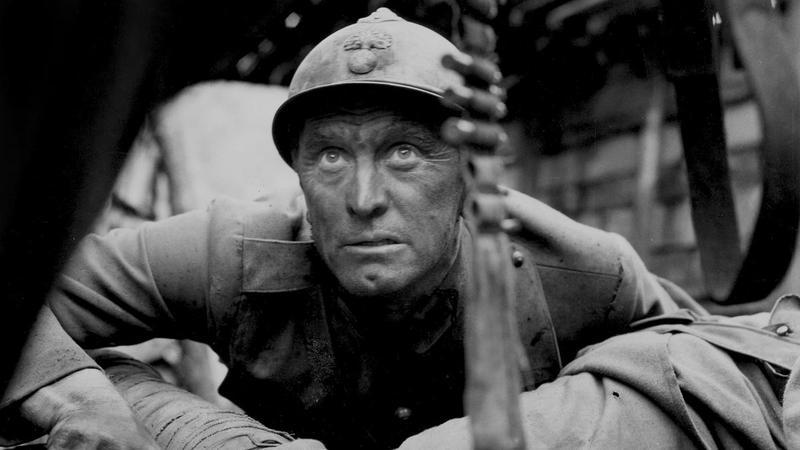
Paths of Glory is a film directed by Stanley Kubrick that was released in 1957. The film tells the story of a group of soldiers who are wrongly accused of cowardice during World War I and are subsequently put on trial. The film was banned in 1957 in several countries, including France, where it was set, because it was considered too critical of the military and the government. The film was also banned in Spain, where it was also set, because it depicted the Spanish army in a negative light.
On top of the ban throughout Europe, Paths of Glory was not allowed to be screened on U.S. military bases due to its anti-war sentiment. Would it have been screened anyway? Probably not.
Despite the ban, the film was a critical success and is now considered a classic of cinema. Today, it is widely viewed as a powerful anti-war film that highlights the horrors of conflict and the inhumane treatment of soldiers. The film's ban did not have a significant impact on Stanley Kubrick's career, as he went on to become of the greatest directors in history.
Monkey Business Was Banned In Ireland Out Of Fear Of The Marx Brothers' Anarchic Powers

Looks like the censors in Ireland didn't have a lot of monkey business in their lives, because they thought Monkey Business would encourage anarchic tendencies. But, come on, it's the Marx Brothers we're talking about here. They're masters of absurdity and chaos, and their films are meant to be a form of escapism and entertainment, not a call to arms for anarchy. But I guess the censors in Ireland just weren't ready for the wild and wacky antics of Groucho, Chico, Harpo, and Zeppo. Good thing they eventually saw the light and lifted the ban in 2000, because Monkey Business is a classic that should be enjoyed by everyone.
Mel Gibson's Breakout Role Never Made It To New Zealand

The censors in New Zealand were a little too eager to put the brakes on Mad Max in 1979. Of course, this groundbreaking film has its fair share of graphic violence, but come on, it's a post-apocalyptic action movie set in a dystopian future. What did they expect? Rainbows and unicorns? The censors must not have been ready for the high-octane thrills and spills of the Road Warrior and his V8 interceptor. But fear not, New Zealanders, because the ban was eventually lifted and you can now enjoy the film's gritty action and over-the-top car chases to your heart's content.
'The Godfather' Was Banned In The USSR For Glamorizing Crime
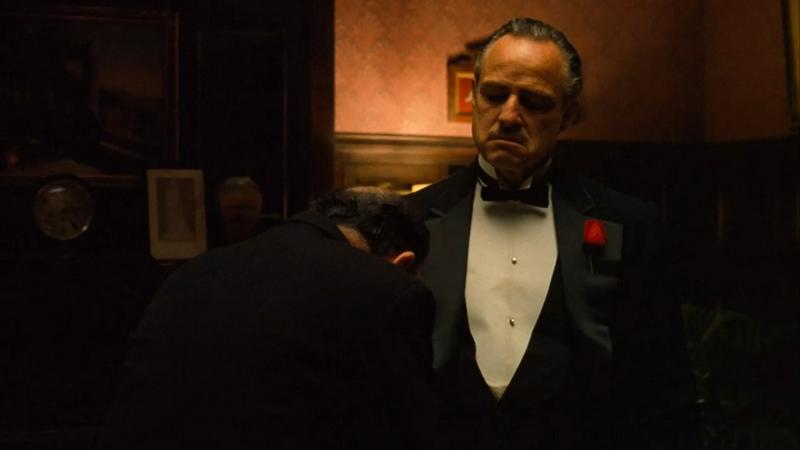
The Godfather was a film that caused quite a stir in the Soviet Union upon its release. Despite its widespread popularity and critical acclaim, the film was ultimately banned in the country due to its depiction of the criminal underworld. The Soviet authorities saw the film as a romanticization of the mob, and were concerned that it could have a negative influence on the youth of the country. However, this only served to increase the film's underground popularity, as Soviet citizens were eager to see what all the fuss was about. Despite the ban, The Godfather remains a classic film that has stood the test of time, and its influence can still be seen in popular culture today.
'Apocalypse Now'? More Like Apocalypse Never In South Korea
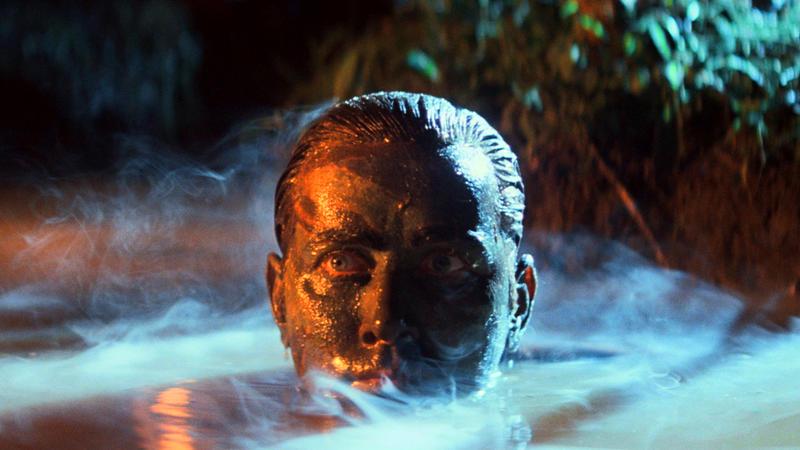
Apocalypse Now was a film that was banned under the regime of South Korean President Park Chung-hee. The film's depiction of the Vietnam War and its themes of violence and corruption were seen as a threat to the government's efforts to maintain stability and order in the country. President Park Chung-hee was known for his strict censorship policies and was quick to ban any works that he saw as potentially disruptive or harmful to the status quo.
As a result, Apocalypse Now was never officially released in South Korea, and those who wanted to see it had to rely on underground channels or smuggled copies. Despite the ban, the film has gone on to become a classic of modern cinema, and its themes of war, insanity, and the human cost of conflict continue to resonate with audiences around the world.
'Mother's Day' Didn't See The Light Of Day In The UK For More Than Two Decades

Oh boy, where to begin with Mother's Day! This film was definitely not your typical family-friendly flick. In fact, it was so gory and disturbing that it was banned in England from 1980 to 2015, far beyond the infamous "video nasty" period. The film follows a group of young people who are brutally murdered by a family of psychopaths on Mother's Day, and it's filled with graphic violence, sexual assault, and all sorts of other disturbing content.
It's not exactly the kind of movie you'd want to watch with your mum, hence the long ban. But if you're a fan of horror movies and don't mind a little (or a lot) of gore, then Mother's Day might just be the film for you. Just be warned: it's not for the faint of heart! So if you're looking for a heartwarming tale about the bond between mothers and their children, look elsewhere. But if you're in the mood for a good old-fashioned horror movie that will have you sleeping with the lights on, then Mother's Day is definitely worth checking out... just maybe not on actual Mother's Day.
'Maniac' Has An Odd Relationship With British Censors
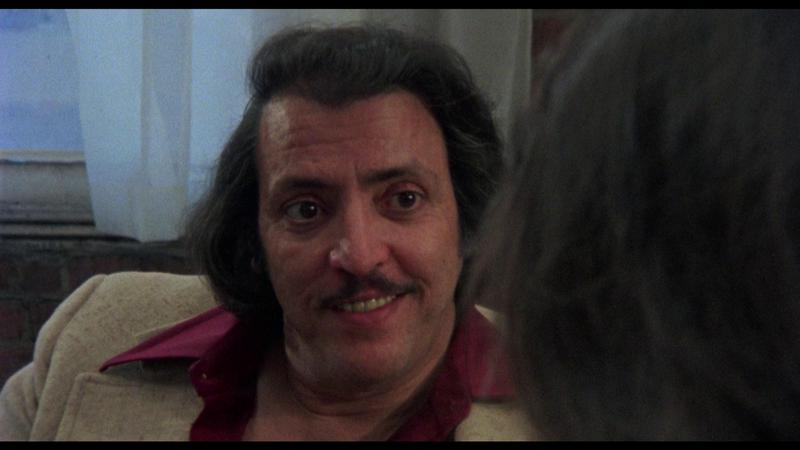
Ah, Maniac, what a film. This film is definitely not for the faint of heart. In fact, it was so gory and disturbing that it was banned twice in England, first in 1981 for its theatrical run, and again in 1998 for a home video release. The film follows a serial killer as he stalks and murders young women in New York City, and it's filled with graphic violence, sexual assault, and all sorts of other disturbing content. It's not exactly the kind of movie you'd want to watch on a cozy night in, hence the ban.
'Vixen!' Banned In Cincinnati!

Vixen! is a film directed by the voyeuristic exploitation director Russ Meyer that played across America except for Cincinnati, Ohio where it was banned for its explicit sexual content. The film was considered too scandalous for audiences in Cincinnati at the time.
Many members of the audience may have found the film titillating, and but others likely found it offensive or inappropriate despite its critically acclaimed. Supposedly the film is still banned in Cincinnati in spite of the fact that it's readily available on home video.
This Mickey Mouse Short Was Banned For Its Gothic Atmosphere

The Mad Doctor is a Disney short film released in 1933 that was banned in the United Kingdom and Germany upon its release. The film follows the misadventures of a mad doctor who kidnaps Mickey Mouse's dog, Pluto, and attempts to put the dog's head on the body of a chicken.
The film was banned in the UK and Germany due to its depiction of the mad doctor, who was seen as a frightening and disturbing character and the more horrific elements found in the doctor's castle (skeletons, etc). Some people found the film too frightening for children, and it was deemed inappropriate for young audiences. Despite its initial ban, The Mad Doctor has since become a classic of animation and is remembered as one of Disney's early masterpieces.
'Glen or Glenda' Was Outright Rejected By The BBFC
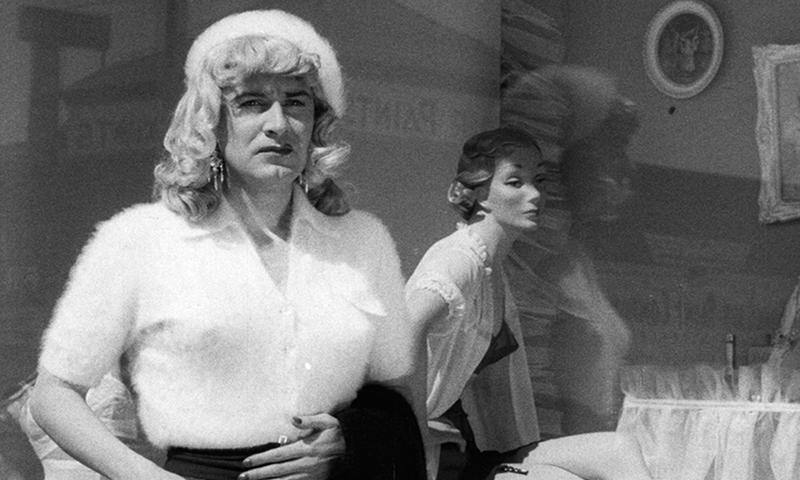
Glen or Glenda is a film written and directed by independent schlockmeister Ed Wood that was released in 1953. The film tells the story of a man named Glen who struggles with his gender identity and desires to live as a woman. Upon its release, Glen or Glenda was refused theatrical distribution in England due to its controversial subject matter and the perceived disturbing nature of its content.
Many people at the time were not comfortable with or understanding of issues related to gender identity, and the film was seen as offensive and inappropriate. Despite its initial rejection, Glen or Glenda has since gained a cult following and is now seen as a significant work in the transgender rights movement. It is considered an important representation of transgender experiences and a pioneering exploration of gender identity issues in film.
The BBFC Tuned In, Turned Off, And Dropped Out Of 'The Trip'

The Trip is a film directed by Roger Corman and released in 1967. The film follows the psychedelic experiences of a young man named Paul who takes a powerful LSD-like drug and embarks on a trippy journey through his own psyche. The Trip was rejected by the British Board of Film Classification (BBFC) four times between 1968 and 1988 due to its depiction of drug use and its potentially harmful effects on audiences.
The BBFC expressed concern that the film could encourage drug use and that it was not suitable for general audiences due to its trippy and sometimes disturbing imagery. Despite its initial rejection, The Trip has since become a cult classic and is now recognized as an important work in the history of psychedelic cinema.
Horror Fans In The UK Had To Wait A Long Time To Visit 'The Last House on the Left'

Wes Craven's directorial debut, The Last House on the Left was released in 1972 and essentially created a shockwave of disgust. The film is a gruesome tale of two young girls who are kidnapped and brutally murdered by a group of criminals. When it made its way to England, The Last House on the Left was banned by the British Board of Film Classification (BBFC) for 30 years due to its extremely violent and disturbing content. Many people found the film's depiction of violence and sexual assault to be offensive and inappropriate, and the BBFC deemed it harmful to audiences.
Despite its ban, the film was briefly released on the UK's unregulated home video market until the Video Recordings Act 1984 was passed, which established a system for regulating video releases in the UK. Today, The Last House on the Left is still considered a controversial film and is not for the faint of heart. Its graphic and disturbing content has made it a cult classic among horror fans, but it remains a divisive and polarizing work.
The Star Crossed Lovers in 'Romeo and Juliet' Weren't Allowed In Canada

Romeo and Juliet is a film adaptation of William Shakespeare's play of the same name, released in 1968 and directed by Franco Zeffirelli. The film was banned in Ontario, Canada due to its depiction of sexual activity and violence. At the time, Ontario had strict laws regulating the portrayal of sexual activity and violence in films, and Romeo and Juliet was seen as violating these standards. The film's depiction of the titular characters as young, passionate lovers who engage in sexual activity and are involved in violent conflicts was considered inappropriate for audiences, and it was banned in Ontario as a result.
Despite its initial ban, Romeo and Juliet has since become a classic of cinema and a beloved adaptation of Shakespeare's play. It is now widely recognized as a timeless love story and a must-watch for every high school freshman English class.
'Dead & Buried' Was Banned In The UK, But Should It Have Been?

Dead & Buried is a 1981 American horror film that was briefly banned in the United Kingdom because it was considered a "video nasty," a term used to describe a group of horror and exploitation films that were deemed excessively violent and harmful by the British government in the 1980s.
The film, which follows a series of bizarre murders in a small town, was not particularly gory, or anything like many of the other video nasties that we've covered, but it was criticized for its disturbing themes and depiction of violence. Despite the ban, Dead & Buried gained a cult following and has since been recognized as a classic of horror cinema.
Today, the film is often remembered as one of the most controversial "video nasties" and is considered a significant example of censorship in the UK during this period. While the film may be disturbing to some viewers, it is generally viewed as a well-made horror film that explores themes of identity, community, and morality.
The Producers Of 'Cannibal Ferox' Claim It Was Banned In More Than 30 Countries

Cannibal Ferox, also known as Make Them Die Slowly, is a 1981 Italian exploitation horror film that was reportedly banned in 31 countries due to its graphic violence and depiction of cannibalism. It's entirely possible that this claim was just marketing, but if Cannibal Holocaust and Faces of Death (a famously fake and very not real movie) faced bans in the United Kingdom then we can assume that Ferox was also banned across the pond.
The film was directed by Umberto Lenzi and is part of the cannibal film genre, which was popular in the 1970s and 1980s and known for its graphic violence and exploitation of indigenous cultures. Cannibal Ferox follows a group of friends who become stranded in the Amazon rainforest and are preyed upon by a tribe of cannibals. The film faced significant controversy and was criticized for its excessive violence and exploitation of indigenous cultures. Despite the widespread bans, the film gained a cult following and is considered a classic of horror and exploitation cinema.
Today, Cannibal Ferox is viewed as a controversial and disturbing film that pushed the boundaries of cinematic expression and challenged societal norms.
'John Goldfarb, Please Come Home!' Faced A Lawsuit For Bringing "Immeasurable Damage" To Notre Dame

John Goldfarb, Please Come Home! is a 1965 comedy film directed by J. Lee Thompson and starring Shirley MacLaine and Richard Crenna. The film tells the story of an American football coach who is hired by the king of a fictional Arab country to turn the country's team into a winning squad. The film is known for its satirical portrayal of Middle Eastern culture and its use of racial and ethnic stereotypes.
John Goldfarb, Please Come Home! was released in 1965 and was met with mixed reviews. However, it was banned in New York state due to its depiction of Middle Eastern culture and its use of stereotypes, which were considered offensive by some groups. In particular, the film was criticized by Notre Dame University, which was depicted in the film as being a rival of the Arab team. Notre Dame officials considered the film's portrayal of the university to be inaccurate and offensive, and they lobbied for the film to be banned in New York. Fox won the lawsuit, but the bad press buried the film.
Today, John Goldfarb, Please Come Home! is not widely known or discussed, and it has not been re-released in recent years. The film has largely been overshadowed by other, more popular films of the era, and its controversial depiction of Middle Eastern culture and its use of stereotypes have made it largely unpopular with modern audiences.

